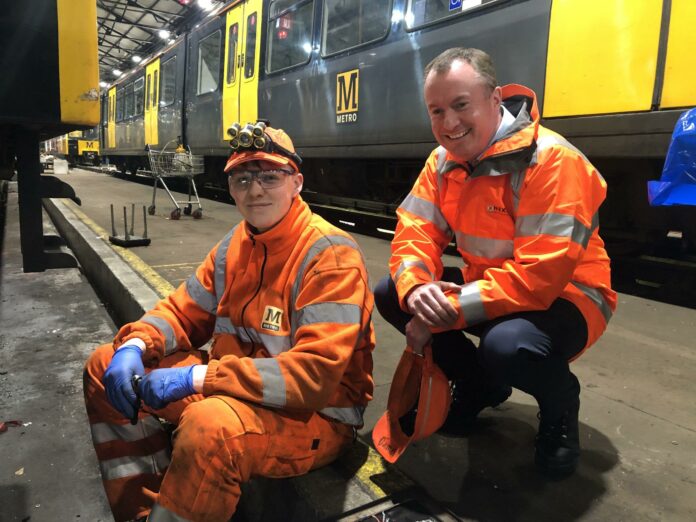The Government has today agreed to fund a £100m scheme to increase service frequency, reduce journey times, and improve reliability on the Tyne and Wear Metro.
The Metro Flow project will see an existing freight line upgraded and electrified in South Tyneside from September 2022, making it capable of carrying Metro services, boosting the capacity for an extra 30,000 passenger journeys every day.
Metro Flow was given the green light by the Chancellor Rishi Sunak in the Budget. The funding, which totals £104m, is coming from the Government’s Transforming Cities Fund, with the Government contributing £95m towards the total cost.
Nexus, the public body which owns and manages Metro, has welcomed the funding and said that the Metro Flow project was great news for passengers.
Benefits of the Metro Flow project include:
- Increasing the frequency of Metro trains to one every 10 minutes outside central areas
- Deliver capacity for an extra 30,000 passengers a day
- Improve reliability and allow quicker recovery from major disruptions
- Better support for major events including the Great North Run, Sunderland International Airshow, stadium concerts, and major sporting events
- Unlock the door to the expansion of the Metro system
In order to deliver the extra frequencies Nexus will use some of the funding to buy four extra new trains on top of the 42 new trains which have already been funded by the Government in a £362m programme of investment.
Director General of Nexus, Tobyn Hughes, said: “The Metro Flow project will allow us to deliver increased train frequencies, cut journey times and improve service reliability for Metro passengers.
“We’re delighted that this vital project has secured Government backing. It’s great news for the Tyne and Wear Metro and for passengers who rely on the service each and every day. It gives Metro greater capacity and will take more cars off the region’s roads.
“The project will involve the conversion of an existing heavy rail line, bringing it into dual use so that Metro services can run alongside freight services, which is similar to the operations we have on the Sunderland line.
“One of the key points of Metro Flow is that it increases the frequency of Metro services system-wide from twelve minutes to ten minutes outside of the central areas. For our passengers this means more regular services, and faster journey times.
“This project also gives us scope to examine future opportunities to expand the network to other areas that are currently not served by Metro services.”
Three sections of single track on the Metro network totalling three kilometres will be dualled between Pelaw and Bede Metro stations.
There are three single-track sections on the Metro network, where trains must use the same line in both directions.
The sections of line are located between Pelaw and Hebburn (800 metres), Hebburn and Jarrow (1.4km) and Jarrow and Bede (600 metres).







































 0113 2082620
0113 2082620 info@railbusinessdaily.com
info@railbusinessdaily.com 15 Mariner Court, Wakefield WF4 3FL
15 Mariner Court, Wakefield WF4 3FL

